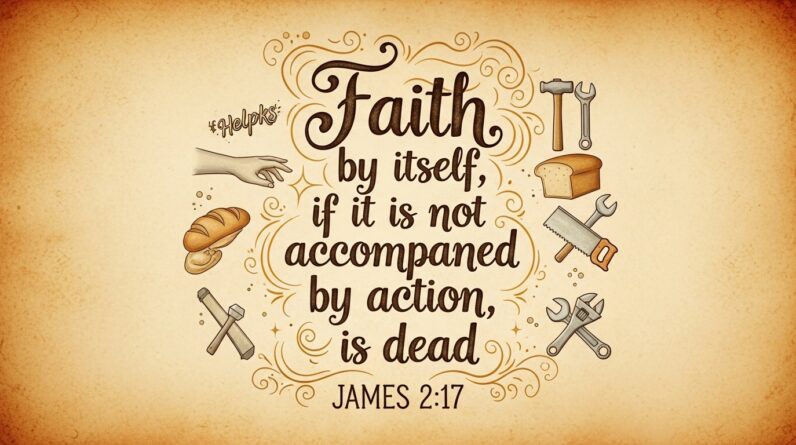Explore the timeless tale of the Prodigal Son in Luke 15:11-32. Delve into themes of loss, redemption, and grace with a contemporary reflection. Embrace the loss.
The Prodigal Son – Embracing The Lost
Scripture Passage
You can feel the weight of this story from its very beginning, can’t you? The tale of the Prodigal Son draws us in with its relatable narrative of loss and redemption, urging us to reflect on our own lives. You’ll find this beautiful parable in Luke 15:11-32. For a richer understanding, take a moment to read the full chapter of Luke 15 where you’ll encounter other stories Jesus shared, all echoing the same theme of seeking the lost and celebrating their return.

Introduction
Imagine, for a moment, a world where every lost soul finds a home again. This is the world that Jesus invites us into through the parable of the Prodigal Son, a story that has been cherished for centuries. At its heart, this parable is about reconciliation and grace, the resounding truth that it’s never too late to turn back and find love waiting for us. As you dive into this sermon, keep the passage open so you can read along and see how these ancient words speak directly into our current lives.
Leaving Home: The Yearning for Independence
Key Scripture: Luke 15:11-13
The story opens with a younger son driven by a yearning familiar to many of us—an intense desire for independence. He demands his inheritance, a bold and, frankly, hurtful request. It’s easy to judge him, but haven’t we all felt the urge to step out on our own, to chart our own course? What strikes us most is the father’s response: he lets him go. This is love that respects autonomy, even when it pains him.
In my own life, I remember leaving home for the first time, not with inheritance in hand, but with dreams as my only currency. The world felt vast and inviting, unburdened by responsibility. Yet, it was not long before reality set in, drawing parallels to this son’s journey. The application here is a reminder that while we may drift, there’s always a way back. We’re encouraged to reflect on our own journeys, questioning if we’ve sought something we thought we needed, only to realize its emptiness.
The Downfall: Consequences of Choices
Key Scripture: Luke 15:14-16
With his wealth squandered and desperation setting in, the prodigal son finds himself tending pigs—a low point that vividly illustrates the consequences of his choices. You can’t help but feel saddened that he reaches such a humiliating state. It’s a stark reminder of how far one can fall when chasing fleeting pleasures or selfish desires.
This part of the story resonates with the struggles many face today. Perhaps it’s an addiction, a fractured relationship, or financial strain. These moments of crisis can be opportunities for growth, but they also highlight the breadth of our losses. Practical application begins with acknowledging these moments in life and choosing to humble oneself, recognizing that change is possible but requires a willingness to return to what truly matters.
Returning Home: The Path to Redemption
Key Scripture: Luke 15:17-20
There’s a pivotal moment when the son “comes to his senses.” Isn’t it fascinating? This realization marks the beginning of redemption. He conjures the image of home, not with shame, but hope. If you’ve ever been lost, you’ll recognize that flicker of understanding: the way back is possible. More importantly, it’s the father’s response that astounds. He runs out to meet his son, brimming with compassion. Picture it—a scene of pure grace and acceptance.
Reflect back on a time when you were welcomed back, perhaps by a friend or family, after you’ve wronged them. Maybe it was a job you thought you’d lost. This is the beginning of understanding the grace that can fill our lives if we’re courageous enough to embrace it. Extending forgiveness and grace to ourselves and others reminds us of our shared human experiences. It’s a call to action—not merely to return to those we’ve drifted from but to welcome with open arms those seeking reconciliation with us.
A Celebration of Return: Love Over Judgment
Key Scripture: Luke 15:21-24
Imagine the rejoicing at the son’s return. A feast is prepared, a celebration of life and redemption. Often, we dwell on what’s lost, yet this demonstrates an outpouring of love so overwhelming that lack pales in comparison. Here lies the core of the Gospel message—grace over judgment.
This rejoicing challenges us to reconsider our own responses to others who have wronged us. Could you celebrate someone else’s redemption, even if they’ve caused you pain? The act of celebrating another’s return can be transformative, moving us beyond bitterness to a place of healing.
Resentment and Grace: The Elder Son’s Reaction
Key Scripture: Luke 15:25-32
The elder son’s reaction is perhaps one of the most human in this narrative. Can you feel his resentment? He’s done everything “right,” yet it’s his brother who receives the celebration. This part of the parable is an invitation to grapple with our own prejudices and the concept of fairness. The father’s response is equally transformative; it reassures us that love isn’t a limited resource.
Consider the times you’ve felt overlooked, doing all the right things while others gained recognition. This moment in the story urges us to ponder who we identify with—the lost or the faithful son—and how grace can envelop us all. In practice, it’s an invitation to foster a greater understanding of fairness intertwined with compassion, to recognize grace extended to others as an extension of love shared with you.
Conclusion
Reflecting on this profound parable, we can find pieces of ourselves in each character—the yearning of the prodigal, the grace of the father, and the struggle of the elder son. Ultimately, the message is clear: there is always room for love, forgiveness, and reconciliation. This parable reminds us that homecoming and healing are always possible, no matter how far we’ve wandered. Keep this story with you as a testament to the power of embracing those we’ve lost and finding our way back home.
As a ClickBank Affiliate, I earn from qualifying purchases.








